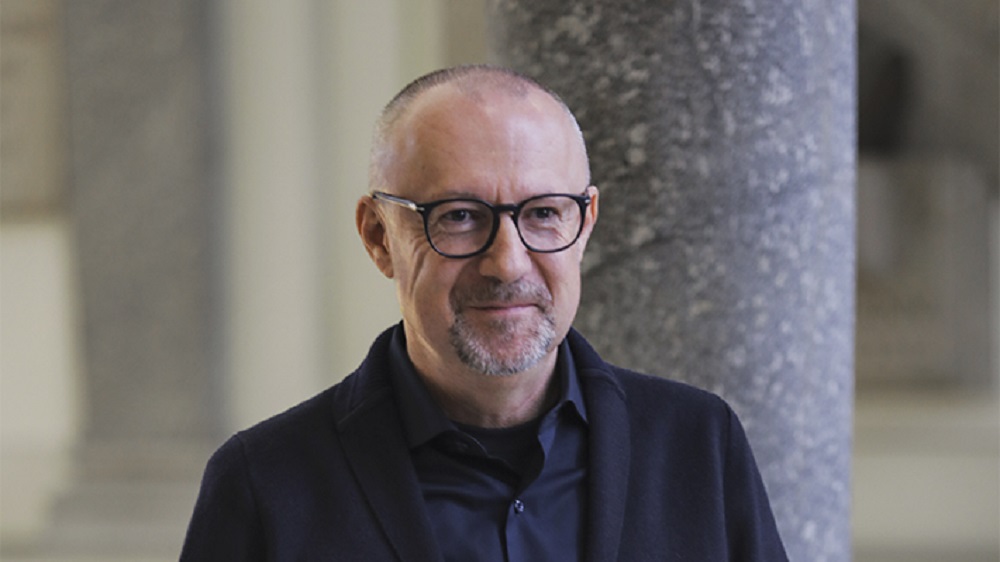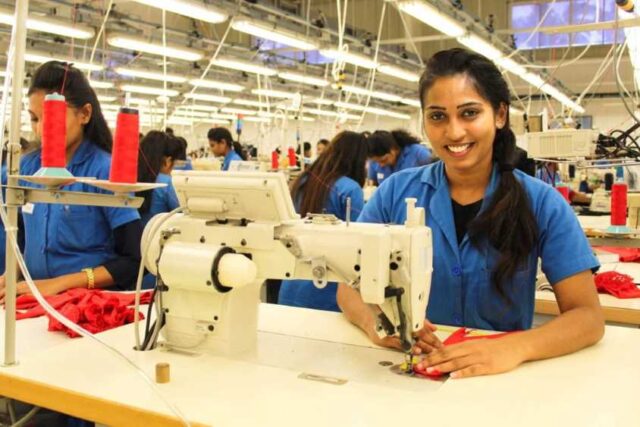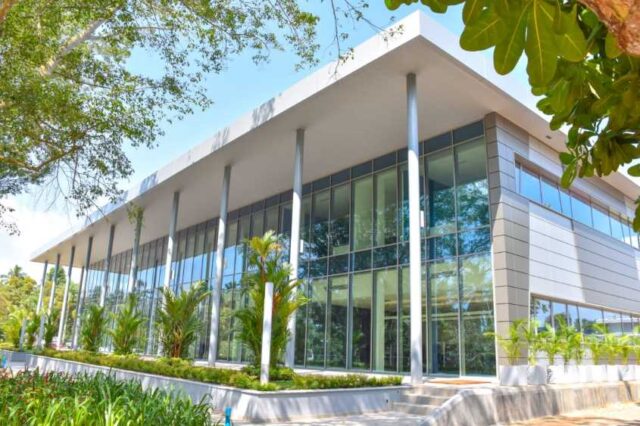
Italian retailer sees strong prospects for the South Asian nation’s apparel industry
Despite the economic crisis Sri Lanka finds itself in today, Sandro Veronesi, President of Calzedonia, one of Italy’s leading retail chains, has great faith in the resilience of Sri Lanka’s apparel industry. His company has over 13,000 employees in the island nation and is planning on increasing its sourcing from Sri Lanka. Calzedonia’s lingerie brands include Calzedonia, Intimissimi, Tezenis and Falconeri, among others.
In an interview, Mr Veronesi elaborated on why he thinks Sri Lanka will continue to be a sourcing destination for apparel buyers in Europe and the US. Excerpts:
Q: Calzedonia set up operations in Sri Lanka when the country was going through an extended civil war. What made you choose Sri Lanka as a potential investment and sourcing destination?
A: We visited several countries at the time in our search for setting up a manufacturing operation: the Philippines, China and Vietnam, etc. But, in the end, we chose Sri Lanka for two main reasons. First, a friend who was operating a factory in Sri Lanka encouraged us to invest in Sri Lanka. During our visit, we also saw how friendly and open people were and that they were good workers.
Second, the Sri Lankan apparel industry had by then specialised in intimate wear production. As a result, companies like Brandix and MAS were making products for Western markets; we could work with them to build capacity and access raw materials and accessories when needed.
It’s been 23 years since making the decision, and it was the right one. However, many people initially thought that we were crazy to invest in Sri Lanka then, based on what they read or heard on the news. So we have always preferred to arrive at our judgements based on what we see and the people we meet without relying too much on secondary sources.

Q: How have your company’s Sri Lankan operations evolved over this time?
A: We started small, with about 200 employees; our brand was also much smaller than it is now. We found the right environment, responsive authorities, and the suitable suppliers.
We built 10 manufacturing units very quickly, in the first ten years itself. Our brand and the number of countries we were in also grew rapidly. Our brands Intimissimi, Tezenis and Falconeri that we make here in Sri Lanka are sold in more than 4,800 stores in 54 countries. We now have more than 13,000 employees in Sri Lanka, many suppliers and 50 manufacturing partners.
Since Italy is part of the European Union (EU), we could take advantage of concessions under the GSP+ regime conferred upon Sri Lanka, which substantially reduced import tariffs. This is important because about 90% of Calzedonia’s stores are currently located in Europe. But, of course, we are also present in China, the US, Japan, Brazil and other markets.
Q: What differentiates Sri Lanka as an apparel manufacturing destination from other countries?
A: In the last decade of the 20th century, it was not unusual to hear people call apparel manufacturing in Asian countries ‘sweat shops’. While it was true that some countries had labour cost advantages, ‘sweat shops’ may have been an exaggeration. What impressed us at Calzedonia – and when working with our Sri Lankan peers like MAS and Brandix – was that apparel manufacturing in Sri Lanka followed robust ethical and sustainable sourcing and production practices compared to many other countries.
All of us have been very conscious of not only our employees’ well-being but also environmental sustainability – in terms of which we’ve continuously improved our performance. With new regulations and standards being set by the Association of Manufacturers and Customers, Sri Lanka is very well-positioned regardingsustainability in apparel manufacturing.
Sri Lanka also has a good mix of cost competitiveness, a professional workforce and the skills and capacity to handle simple and basic styles but qualified complexed production. Few years ago, these capabilities were available just in traditional apparel manufacturing countries like Italy, Spain and Portugal.
Sri Lanka has also improved the quality of its labour force and the technicians; its fabric, materials and accessories can be sourced locally. Even now, we’re working to increase the share of raw materials originating from Sri Lanka, which would not have been possible a few years ago. Suppliers have invested in machinery and have acquired the technical know-how.
Q: Now, with the ongoing economic crisis, how have you and your partners been navigating through these challenging conditions?
A: The situation is saddening, especially when you consider the plight of the Sri Lankan people. We have first-hand experience of these issues; Italy has also faced economic crises in the past. The inherent ability of Sri Lanka’s people to adapt, be flexible and maintain their sights on the future will help the country overcome this crisis, just as it has through past situations.
Finding a solution will take some time; there are political challenges and difficulties when you have to work with several international institutions.
However, if the people remain resilient, as they have for all these years, this crisis too will be overcome. So I think that Sri Lanka will emerge stronger. To address and manage such crises in Italy, we tried to create consensus among different groups through coalition governments. Perhaps that will work here too.
Q: Do you have a message for other apparel buyers about sourcing from Sri Lanka?
A: Our message is simple: we believe in this country. We have not reduced our sourcing from Sri Lanka; we are, in fact, increasing the volumes that we source from this country. We see this as an opportunity to grow even more than we have so far within Sri Lanka. Every crisis creates opportunities. Sri Lanka will take advantage of them, and so will we.

Bio of Mr. Sandro Veronesi
Mr. Sandro Veronesi is the Chairman of the Calzedonia Group, which was founded in 1996 and sspecialises in selling hosiery and swimwear.
Firmly believing in the power of specialisation, he introduced a new brand, Intimissimi, which focused on lingerie and underwear. Other brands which fall under the group include Tezenis, Falconeri, Sigorvino Atelier Emé and Intimissimi Uomo, which specialises in cashmere knitwear to wedding and formal dresses.
In 1999 Sandro Veronesi created Fondazione San Zeno, which donates to organisations and associations engaged in projects of literacy, education and professional training in Europe, Asia, Africa and Latin America. In 2009, the President of the Italian Republic awarded him the “Cavaliere del Lavoro” (Knight of Labour) title for his entrepreneurial merits.



